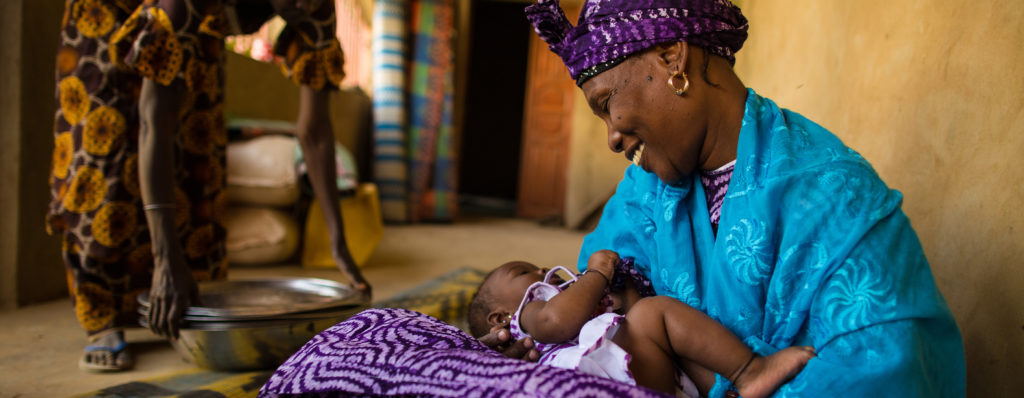Published: 03/04/2021

Stanford’s Center for Innovation in Global Health Seed Grant program encourages the development of innovative solutions to global health challenges. With early-stage funding, this program supports operational, scientific and clinical research as well as innovations in health care implementation or delivery. The Center for Innovation in Global Health believes that local is global; we are committed to improving health equity among all underserved or marginalized groups. We welcome applications from research teams that will conduct research related to improving health equity in the United States, and elsewhere. Interdisciplinary research teams are strongly encouraged to apply.
The Principal Investigators and funding must be based at Stanford University.
Priority Areas
Priorities reflect the Center’s major initiatives and priorities of those providing funding. Preference may be given to projects that:
- Address health implications of climate change or other forms or anthropogenic environmental degradation
- Investigate global respiratory and allergy-related diseases
- Seek solutions to improve the health of pregnant women and children in low-resource settings
- Support innovative research in emergency medicine in low-resource settings
- Seek to improve health systems and expand access to health services in low-income settings
- Conduct research connected to understanding and/or responding to threats of human extinction
Eligibility
- Stanford faculty with PI eligibility [tenure line (UTL), medical center line (MCL) or research (NTLR) faculty appointments] may submit proposals. Clinician Educators (CE) at the rank of clinical assistant professor and above who are full-time Stanford employees with 100% CE faculty appointments are eligible. Post-doctoral fellows may be included as co-PIs.
- In the case of grants funded by the Stanford Maternal and Child Research Institute: All faculty (UTL, MCL, NTLT, NTLR, CE, instructors), postdoctoral scholars/fellows, clinical trainees and research scientists/scholars (senior or regular). Clinical trainees, postdoctoral scholars/fellows, and regular (not senior) research scientists/scholars must identify a faculty mentor. Applicants must have a focus on maternal child health research (Eligible: all areas of research related to child health: basic, translational, clinical research, epidemiology/statistics, informatics, health services, and health policy).
- The Center for Innovation in Global Health believes that local is global; we are committed to improving health equity among all underserved or marginalized groups. We welcome applications from research teams that will conduct research related to improving health equity in the United States, and elsewhere.
- Projects that create new interdisciplinary collaborations are encouraged, as are those including Fellows, post-docs, students, and/or staff. Teams may include investigators in off-campus partner institutions, including in Low- or Middle-Income Countries. Teams may also partner with nonprofit organizations, industry or government officials.
* You do not have to prepare a PIF, a PDRF form or work with your institutional representative (RPM or OSR)
Selection Criteria
The Stanford Center for Innovation in Global Health and funders will review proposals based on:
- Scientific merit of the proposal, with quality, innovation and creativity balanced by likelihood of success.
- Broad interdisciplinarity: will the team’s collaborative effort be stronger than the sum of its parts?
- Likelihood that results or solutions will result in improvement of health issues faced by vulnerable populations.
- A persuasive case that results would catalyze further funding from external sources.
Amount of funding
$10,000 – $50,000 for 18 months. Funders include the Stanford Center for Innovation in Global Health, the Woods Institute for the Environment, the Maternal and Child Health Research Institute, the Sean Parker Institute for Allergy and Asthma Research, the Department of Emergency Medicine, the King Center for Global Development, Open Philanthropy, and Bob and Kathy Burke.
Budget Guidelines
Award amounts are based on analysis of a detailed budget request.
- Funds may be used for salary support of faculty, graduate students and other research staff.
- Operating supplies, minor equipment items, prototyping expenses, imaging time, and travel directly associated with the research activity are examples of eligible budget items.
- The grants will not support general staff, administrative support, or tuition.
- Seed grant funds cannot be used for subawards to other institutions.
- No indirect charges need be included in your budget.
Submission Guidelines
All documents should be in pdf format, single-spaced, Arial 11-point font, with one-inch margins.
Submissions must not exceed 3 pages, exclusive of cover page, citations, budget, and biographical information.
To be considered, all elements of the proposal must be collated into one PDF file and uploaded.
Each proposal must include:
- Cover page with project title, one-paragraph summary, Priority Area(s), and each team member’s name, email, professional title, and department and school affiliation(s)
- Proposal
- Introduction
- Specific aims
- Preliminary data (if available)
- Proposed project design and methods
- Collaboration plan (how will the multi-disciplinary team work together)
- Description of potential for impact and follow-on funding
- Supporting material
- Literature cited
- Budget
- Short (150 words max) bio-sketches for team members and recent CV (2 pages maximum) for PIs.
Proposals are due via online application by Thursday, April 15, 2021 at 11:59 PM.
Maximum funding amount: $50000
Questions and concerns: Please contact S. Jill Mueller, sjillmueller@stanford.edu.
Photo by: Morgana Wingard, USAID